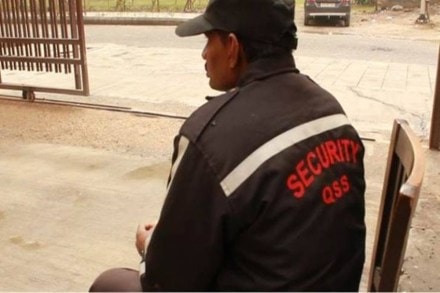Security and Intelligence Services (SIS) is India’s biggest player in physical security, and the largest trainer of private security and facility management personnel in the country. Founded by Ravindra Kishore Sinha in 1985, SIS is now run by Rituraj Kishore Sinha, group MD, who, in an interview with FE’s Vikram Chaudhary, says the lockdown led to the most transformational skilling exercise undertaken in this industry. Excerpts:
What all has changed for security guards during the lockdown?
The role performed by them has been transformed. Earlier they were used to holding a stick or a metal detector or a walkie-talkie, but now they are operating infrared thermometers, ensuring mask-wearing compliance, and at certain manufacturing facilities keeping attendance of staff and visitors (biometric machines aren’t being used at many places).
Did SIS run special training exercise for its security guards?
We had a head start. We also operate in Singapore, where Covid-19 peaked earlier than it did in India. The learning set developed in Singapore helped our India operations; we put together new training content in February and a training campaign, in two parts, was rolled out on March 6.
The first was an awareness and prevention campaign—we knew our manpower would need to work throughout the lockdown, so we educated them on how to stay safe. On our M-Trainer platform, Covid-19 training was provided via short videos and a questionnaire on a mobile app; also behavioural training, how to file reports and so on. The second was what we called the SIS Circle of Safety; we did customised training including visitor management, antimicrobial treatment, Covid-19 compliance, vehicle disinfection, etc.
For how long did this training continue?
While structured training continued well into the month of May, upskilling is a continuous process.
You talked about the M-Trainer and short videos; is this on the assumption that all guards use a smartphone?
At SIS, 83% of our staff have a smartphone, and others were covered either by them watching videos on a colleague’s smartphone, or by our mobile training van.
Has the curriculum at your residential training academies also changed?
Yes, all the content that got created for our existing guards has now flown into our regular induction training programmes, at our 20 residential training academies in 14 states.
Does this training also open up new job avenues for security guards?
Upskilling anyway opens up new job opportunities, be it any area. At SIS, we have seen once people get into the organised workforce, some do move into different job roles; for example, some of our cash van drivers went on to become Ola drivers (although right now the reverse flow is happening, due to the pandemic).
